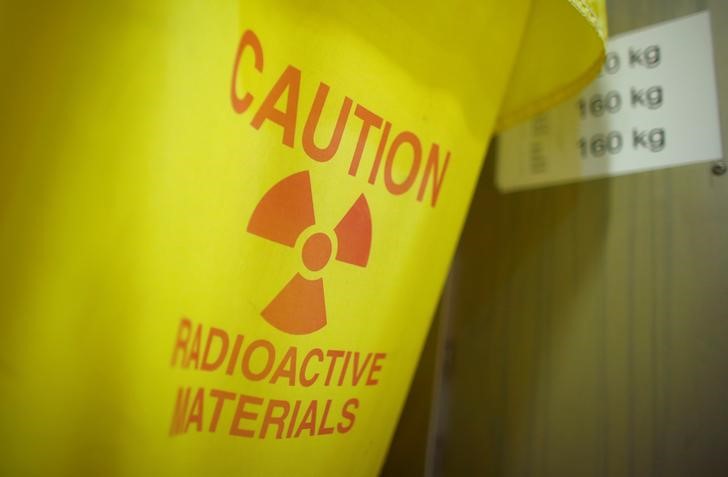By Geoffrey Smith
Investing.com -- U.S. Democratic Party lawmakers flesh out their tax hike plans. Uranium is the new hot thing in commodities markets. U.S. stocks are set to rebound from last week's losses as Apple rebounds and Covid-19 case numbers fall. That, along with extended outages in the Gulf of Mexico, is also pushing oil prices above $70 a barrel. Beijing still isn't done with Alibaba (NYSE:BABA) and Ant Group, and Oracle (NYSE:ORCL) reports earnings after the close. Here's what you need to know in financial markets on Monday, 13th September.
1. Dems flesh out tax plans
More details emerged about Democratic lawmakers’ plans to raise taxes, as the party looks for ways to fund its massive planned spending increases.
The Wall Street Journal reported that the Ways and Means Committee is set this week to discuss proposals that the rate of corporate income tax be raised to 26.5% from 21%, and that the minimum income tax rate on companies’ foreign earnings be raised to 16.5% from 10%.
In addition, the Democrats will propose a surcharge of 3% on annual individual incomes over $5 million, as well as an increase in the top rate of capital gains tax to 28.8% from 23.8%.
The measures are intended to fund a big expansion of renewable energy incentives and the welfare state, notably in the area of child care and statutory paid leave.
2. Uranium is clicking hot
An eye-popping rally has broken out in one of the most neglected corners of the energy market. Uranium Futures have risen more than 30% in less than a month, chiefly due to a surge in buying of the underlying physical product by a little known Canadian entity, Sprott Physical Uranium Trust (OTC:SRUUF).
Uranium, whose only significant commercial use is in nuclear fuel, has been in a rut ever since the Fukushima nuclear disaster in 2011, which led to the accelerated phase-out of nuclear power in Germany and drastic revisions to other countries’ plans to upgrade or expand their nuclear output.
It’s spiking now partly because of record high power prices in Europe and much of the U.S., triggered in part by shortfalls of renewable energy. That has helped revive the narrative of nuclear as the most reliable low-carbon energy source. In the nearer-term, it also means that nuclear generators can more easily absorb any rise in fuel costs, which in any case account for a far smaller portion of nuclear plants’ expenses than they do for coal and gas-fired plants.
3. Stocks set to bounce, as Apple absorbs Epic disappointment
U.S. stock markets are set to rebound from last week’s losses at the open later, buoyed by the decline in Covid-19 cases across the country last week (even though deaths – a lagging indicator – are still close to record high in some regions).
By 6:15 AM ET (1015 GMT), Dow Jones futures were up 182 points, or 0.5%, while S&P 500 futures and Nasdaq 100 futures were up in parallel.
Stocks likely to be in focus later include Apple (NASDAQ:AAPL), in the wake of a landmark ruling against the company in favor of Fortnite publisher Epic Games on Friday that threatens to hit the earning power of its app store. Epic said on Sunday it will appeal the court ruling, which it said didn’t go far enough in recognizing Apple’s alleged abuse of its dominant position.
Oracle is the only company of note reporting, and that’s after the closing bell.
4. Beijing isn't finished with Alibaba yet
Alibaba's (NYSE:BABA) regulatory troubles continue to multiply. The Financial Times reported that Chinese authorities are looking to break up its Alipay associate to reduce its market power, spinning off its two big lending operations from the rest of the payments-focused group.
The two apps affected are Huabei, which runs a credit card business, and Jiebei, which makes unsecured loans. Together, they now account for more of the group’s revenue (just under 40%) than Alipay’s traditional payments business.
The FT said Beijing wants Alipay’s parent Ant Group to transfer the user data that underpins its lending decisions to a new credit scoring joint-venture, in which the state would also be an investor. Alibaba (HK:9988)’s shares fell 4.3% in Hong Kong.
5. Oil surges despite looming OPEC report, Shanghai typhoon
The Organization of Petroleum Exporting Countries is expected to revise down its estimate of global oil demand when its published its monthly report on the world oil market around 7 AM ET (1100 GMT).
That’s because it expects outbreaks of Covid-19 across the world to continue to affect demand for aviation and, to a lesser extent, motor vehicle fuel, according to newswire reports over the weekend.
Crude oil prices have broken upwards through $70 overnight, however, due to the continued absence of nearly 900,000 barrels a day of output from offshore platforms in the Gulf of Mexico. That’s outweighing reports that China is planning a substantial sale from its Strategic Petroleum Reserve, as well as reports of a typhoon that looks likely to hit China's eastern seaboard this week.
By 6:20 AM ET, U.S. crude futures were up 1.3% at $70.64 a barrel, while Brent was up 1.1% at $73.73 a barrel.
